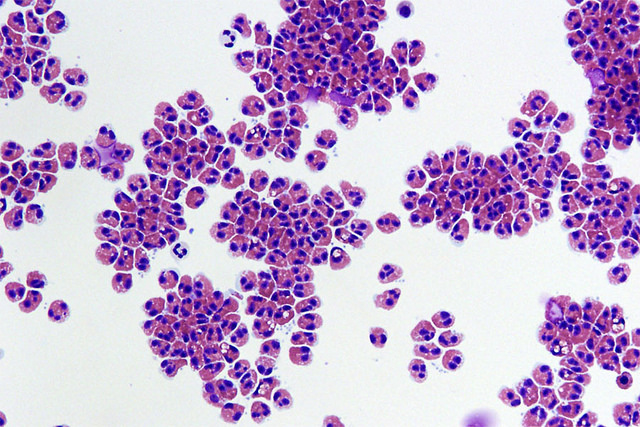In the setting of percutaneous coronary revascularization, agents in the class known as platelet glycoprotein IIb/IIIa inhibitors have significantly reduced the incidence of death or nonfatal myocardial infarction at 30 days. We assessed whether there are differences in safety or efficacy between two such inhibitors, tirofiban and abciximab.
In the setting of percutaneous coronary revascularization, agents in the class known as platelet glycoprotein IIb/IIIa inhibitors have significantly reduced the incidence of death or nonfatal myocardial infarction at 30 days. We assessed whether there are differences in safety or efficacy between two such inhibitors, tirofiban and abciximab.Using a double-blind, double-dummy design at 149 hospitals in 18 countries, we randomly assigned patients to receive either tirofiban or abciximab before undergoing percutaneous coronary revascularization with the intent to perform stenting. The primary endpoint was a composite of death, nonfatal myocardial infarction, or urgent target-vessel revascularization at 30 days. The trial was designed and statistically powered to demonstrate the noninferiority of tirofiban as compared with abciximab.The primary endpoint occurred more frequently among the 2398 patients in the tirofiban group than among the 2411 patients in the abciximab group (7.6 % vs 6.0 %; hazard ratio, 1.26; one-sided 95% CI of 1.51; demonstrating lack of equivalence, and two-sided 95% CI of 1.01-1.57, demonstrating the superiority of abciximab over tirofiban; p = 0.038). The magnitude and the direction of the effect were similar for each component of the composite endpoint (hazard ratio for death, 1.21; hazard ratio for myocardial infarcion, 1.27; and hazard ratio for urgent target-vessel revascularization, 1.26), and the difference in the incidence of myocardial infarction between the tirofiban group and the abciximab group was significant (6.9 % and 5.4 %, respectively; p = 0.04). The relative benefit of abciximab was consistent regardless of age, sex, the presence or absence of diabetes, or the presence or absence of pretreatment with clopidogrel. There were no significant differences in the rates of major bleeding complications or transfusions, but tirofiban was associated with a lower rate of minor bleeding episodes and thrombocytopenia.Although the trial was intended to assess the noninferiority of tirofiban as compared with abciximab, the findings demonstrated that tirofiban offered less protection from major ischemic events than did abciximab.(Source: European Society of Cardiology: Acute Coronary Syndromes Trials)
All content and media on the HealthEngine Blog is created and published online for informational purposes only. It is not intended to be a substitute for professional medical advice and should not be relied on as health or personal advice. Always seek the guidance of your doctor or other qualified health professional with any questions you may have regarding your health or a medical condition. Never disregard the advice of a medical professional, or delay in seeking it because of something you have read on this Website. If you think you may have a medical emergency, call your doctor, go to the nearest hospital emergency department, or call the emergency services immediately.







